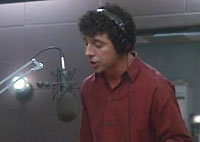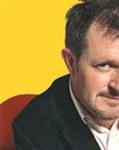There's always a fall-out wherever expressive entertainment crosses paths with corporate economic imperatives - and generally it's creative integrity that ends up trampled in the dust. This is equally the case in commercial radio. However, a turnaround is on the cards, inspired by the voice, fingers and ears of the listener, and it provides an opportunity for one specific format of radio.
The ongoing battle between the BBC and commercial radio for the ears, minds and hearts of the British radio consumer is a fascinating, ongoing struggle between formats. Whereas the local BBC stations mainly offer full service programming, which is more speech-based, the local commercial stations are driven mostly by music.
It is a similar set up here in South Africa, where most commercial radio stations carry mainly music and leave the full service offering to the state radio stations.
Well, this is all about to change.
From the moment the SABC sold its regional radio stations in 1994, the corporatising of the subsequent commercial radio stations was always going to be on the cards. As in the UK, SA commercial radio stations have been traded to the point that the industry is now in the hands of a few corporates. There is nothing wrong with this, except for the fact that corporates use phrases such as 'economies of scale' and 'cost curves'.
Such talk scares creative radio people because it's all about the money, and whereas in the saying "talk is cheap", in radio it's not. The reason commercial radio stations are mainly programmed around music is that music is cheaper than talk. Compelling talk requires the experience of talented people. Talented people cost money, and really talented people cost lots of money; and that's bad when it comes to maximising profits.
This is especially the case in the UK where radio groups swell their ranks by buying up smaller commercial radio stations. People represent a cost factor, so station programme managers are replaced by group programme managers, radio presenters are fired, and speech on the stations, outside of drive-time programming, is reduced to voice-tracking (recorded voice bits tagged on to the ends of long sweeps of music). A leading figure in the UK's Radio Academy once described the corporatising of commercial radio to me thus: it's cheaper to have monkeys playing music.
However, radio consumers are becoming wiser and more discerning. Because they can access and manage their own music on a wide variety of multi-use handheld devices, and can also express themselves through social networking; they are looking for an alternative to just music.
This means speech, specifically compelling, exciting and enlightening speech; and that means talented people who can wield words like daggers and inspire emotive discourse among listeners through vibrant storytelling.
So surely this means that music formatting is going get a shake up and talk radio is, at long last, about to have its day?
If so, that worries me. Because in South Africa the purveyors of talk radio are either badly managed or seemingly hard to find. SABC stations that encourage talk are either populated by people in love with the sound of their own voice, or people who believe that just talking about anything is good enough.
Commercial talk radio has a different problem. The syndication of shows from Johannesburg across both Primedia talk radio stations - Talk Radio 702 and 567 Cape Talk - suggests that Cape Town doesn't harbour such talent. Of course that's not the case; but as I said: talented people cost money. As a former talk radio man myself, I abhor the concept of syndication, but as a businessman I am well aware that syndication cuts costs.
So what's the solution?
The dramatic shift in the media environment and the desire from consumers for more than just music, as well as their growing appetite for expressing their views, should be seen for what it is: an opportunity to satisfy a growing demand for more relevant and powerful speech-based programming.
This means national SABC stations need to up their game and drive their talent to produce more compelling speech; and for commercial talk stations to leverage their command of the medium to show that there is a viable alternative in radio to just music.

In Oliver Stone's brilliant film Talk Radio, the host Barry Champlain, describes the format he employs as "the last neighbourhood in America". Perhaps South Africans should embrace a similar collective consciousness and at the same time satisfy their demand for more from their radio stations, by talking with each other on-air.
In my mind, it's time to say goodbye to monkeys playing music, and say hello to the revival of talk radio.
